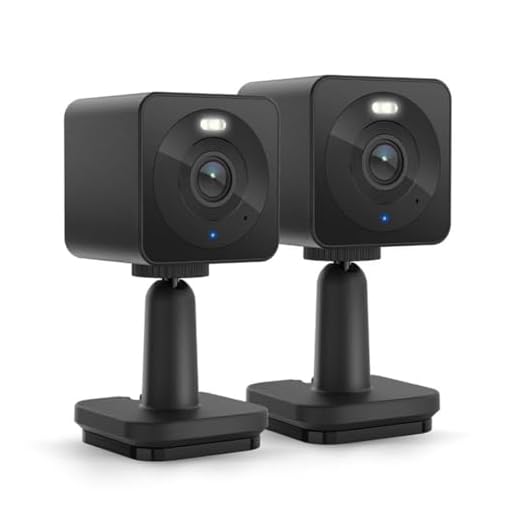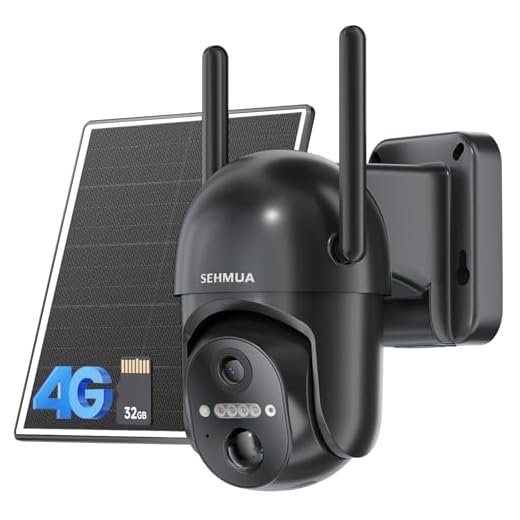




Internet-activated cameras have become an essential part of our modern lives, offering convenience and security in equal measure. However, with this convenience comes the risk of potential security breaches and privacy violations. It is crucial to take proactive steps to secure your internet-activated cameras to protect your personal data and privacy.
In this guide, we will explore some practical tips and best practices to help you secure your internet-activated cameras effectively. By following these steps, you can minimize the risk of unauthorized access and ensure that your cameras remain a reliable and secure tool for monitoring your home or business.
Whether you are using a smart security camera, a baby monitor, or a webcam, these security measures will help you safeguard your devices and data from cyber threats. Let’s dive into the world of internet-activated camera security and learn how to keep your devices safe and secure.
How to Secure Internet Activated Cameras
Internet-activated cameras are a convenient way to monitor your home or office remotely, but they can also be vulnerable to security risks. Here are some tips to help you secure your internet-activated cameras:
1. Change the Default Password
One of the most important steps you can take to secure your internet-activated camera is to change the default password. Many cameras come with a default password that is easy to guess, so be sure to change it to a strong, unique password that only you know.
2. Update Firmware Regularly
Keeping your camera’s firmware up to date is crucial for security. Manufacturers often release updates that patch security vulnerabilities, so be sure to check for and install firmware updates regularly to protect your camera from potential threats.
By following these tips, you can help ensure that your internet-activated cameras are secure and protect your privacy and security.
Importance of Securing Cameras
Securing internet activated cameras is crucial in today’s digital age. These cameras can be vulnerable to hacking and unauthorized access if not properly secured. By taking necessary precautions, you can protect your privacy and prevent potential security breaches.
Prevention of Unauthorized Access
Securing your cameras helps prevent unauthorized access to your live video feeds and recordings. Hackers can exploit vulnerabilities in unsecured cameras to spy on you or your property, putting your safety and privacy at risk. By implementing strong security measures, you can prevent such intrusions and maintain control over who can access your camera feeds.
Protection of Personal Data
Internet activated cameras may store sensitive personal data, such as video recordings of your home or workplace. Securing these cameras ensures that your personal data remains confidential and protected from potential breaches. By encrypting data transmissions and using secure login credentials, you can safeguard your privacy and prevent unauthorized users from accessing your data.
Tips for Setting Strong Passwords
Setting strong passwords is crucial for securing your internet activated cameras. Here are some tips to help you create strong passwords:
1. Use a combination of letters, numbers, and special characters
Include a mix of uppercase and lowercase letters, numbers, and special characters such as !, @, #, or % in your password to make it more difficult to crack.
2. Avoid using easily guessable information
Avoid using common words, phrases, or personal information such as your name, birthdate, or address in your password. Hackers can easily guess these types of passwords.
Enabling Two-Factor Authentication
One of the most effective ways to secure your internet activated cameras is by enabling two-factor authentication (2FA). 2FA adds an extra layer of security by requiring not only your password but also a second piece of information to verify your identity.
When setting up 2FA for your cameras, you can choose to receive a verification code via text message, email, or through an authenticator app on your smartphone. This additional step makes it much harder for unauthorized users to gain access to your camera feed.
Make sure to enable 2FA for all your internet activated cameras to enhance their security and protect your privacy.
Regular Software Updates
One of the most important steps in securing internet-activated cameras is to ensure that the software on the devices is up to date. Manufacturers often release software updates that include security patches and fixes for vulnerabilities that could be exploited by hackers. It is crucial to regularly check for updates and install them promptly to protect your cameras from potential security threats.
Network Security Measures
Securing internet activated cameras involves implementing strong network security measures to prevent unauthorized access and protect sensitive data. Here are some key steps to enhance the security of your network:
- Enable encryption: Use strong encryption protocols like WPA2 to secure your Wi-Fi network and prevent eavesdropping.
- Change default passwords: Always change the default passwords on your cameras and network devices to unique, strong passwords to prevent easy access.
- Update firmware: Regularly update the firmware of your cameras to patch security vulnerabilities and improve overall security.
- Use a firewall: Implement a firewall to control incoming and outgoing network traffic and block unauthorized access attempts.
- Disable UPnP: Disable Universal Plug and Play (UPnP) on your router to prevent potential security risks associated with this feature.
By following these network security measures, you can significantly enhance the security of your internet activated cameras and protect your privacy and data from potential threats.
Restricting Access to Cameras
One of the most important steps in securing internet activated cameras is to restrict access to them. Here are some ways to restrict access:
1. Change Default Passwords
Many internet activated cameras come with default passwords that are easy to guess. Make sure to change the default passwords to strong, unique passwords that are not easily compromised.
2. Enable Two-Factor Authentication
Two-factor authentication adds an extra layer of security by requiring users to provide two forms of verification before accessing the camera. This can help prevent unauthorized access to your cameras.
Monitoring Camera Activity
One of the key aspects of securing internet-activated cameras is to actively monitor their activity. By regularly checking the camera feed and access logs, you can quickly identify any suspicious behavior or unauthorized access attempts. Here are some tips to effectively monitor camera activity:
1. Set up alerts
Configure the camera system to send alerts or notifications to your email or mobile device whenever there is unusual activity detected, such as motion detection or unauthorized access attempts. This will allow you to respond promptly to any security threats.
2. Review access logs
Regularly review the access logs of the camera system to track who has accessed the cameras and when. Look for any anomalies or unauthorized login attempts that may indicate a security breach. Keep a record of the access logs for future reference.
| Monitoring Camera Activity Tips: |
|---|
| Set up alerts for unusual activity |
| Review access logs regularly |
Deactivating Unused Cameras
One important step to ensure the security of internet-activated cameras is to deactivate any cameras that are not in use. Here are some tips on how to do this:
1. Disable Remote Access
If your camera has a remote access feature, make sure to disable it when the camera is not in use. This will prevent unauthorized access to the camera’s feed.
2. Turn Off the Camera
If possible, physically turn off the camera when it is not needed. This will ensure that the camera is not inadvertently activated and can help conserve energy.
By deactivating unused cameras, you can minimize the risk of unauthorized access and protect your privacy and security.







